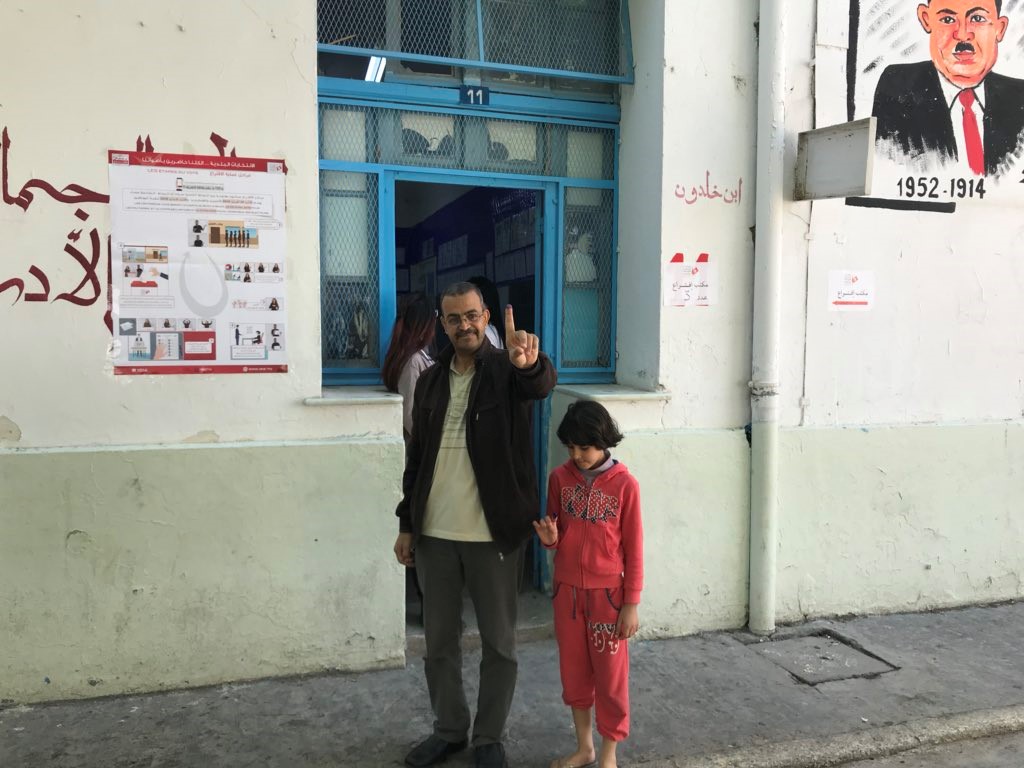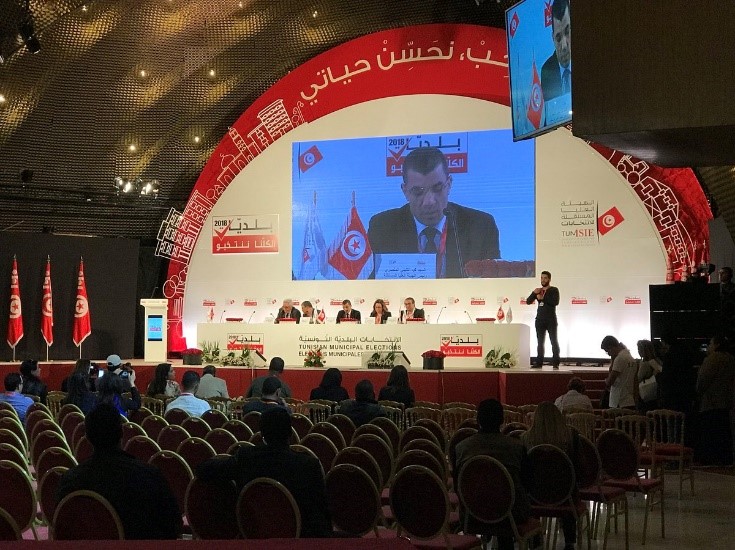In First Post-Revolution Local Elections, Tunisians Register Disappointment, Indifference

Following several postponements, Tunisians finally went to the polls last Sunday in the country’s first democratic local elections since the 2011 revolution. The message Tunisian voters sent? Indifference.
As expected, voter turnout was disappointingly low. Only 33.7 percent of eligible voters cast ballots in what many parties viewed as a trial run for the 2019 national elections. Recent IRI polling hinted at the potential for low turnout in Sunday’s elections; a national public opinion survey fielded in November 2017 indicated that only 43 percent of Tunisians were “very likely” to vote in municipal elections, a 13-point increase since April 2017 but a rough average since November 2015. Yet, Sunday’s results were even lower than expected. In some municipalities – Bizerte, Tunis 1 and Tatouine – turnout barely exceeded 25 percent.
Even Prime Minister Yousef Chahed, a member of the Nidaa Tounes party, appeared on television shortly after polls to warn the political establishment. “The components of the political scene should grasp the significance of this message and improve the political discourse to regain the trust of citizens who are the backbone of the democratic construction process,” he said. Politicians should “learn lessons” from the “negative indicator,” he continued.
Preliminary results announced by Tunisia’s Independent High Authority for Elections illustrate the disappointment in Tunisia’s political establishment. Independent lists won the largest percentage of votes, 32.9 percent, compared to the tepid vote of confidence for the two major parties Ennahda (29.7 percent) and Nidaa Tounes (22.7 percent) in a power-sharing agreement. Sunday’s results confirm the lack of enthusiasm in the political establishment registered in IRI’s November polling; when asked for which party Tunisians planned to vote, 42 percent said they did not know or refused to answer.

Part of the reason for the low turnout was likely confusion regarding what the election was for. As part of the political decentralization process outlined in Tunisia’s 2014 Constitution, local elections select members for Tunisia’s 350 municipal councils which are granted legal, administrative and financial independence from the central government. However, a whopping 69 percent of Tunisians are not at all knowledgeable about the decentralization process, according to IRI’s November survey. Moreover, Tunisia’s parliament did not adopt the Local Collectivities Law, the organic law that defines the specific mandate of municipal councils, until less than a week before elections. Dozens of laws articulating the relationship between local authorities and the central government still need to be adopted to clearly define the prerogatives of municipal councils.
Sunday’s elections demonstrate the need for political parties and politicians to listen carefully to ordinary Tunisians, majorities of whom are deeply pessimistic about the direction of the country and the economic outlook. Economic opportunity – jobs and a rising standard of living – is their top concern and pluralities believe addressing unemployment and combatting corruption are the best way to get there. Newly elected municipal councils will play an important role in addressing these concerns. Once organized, councils will make consequential decisions on local development priorities, including infrastructure, investment and service delivery. Between now and 2019 elections, politicians will have to meet citizens’ high expectations for political leaders and prove that they understand their concerns. If they do not, parties are likely to fare even worse in next year’s national elections.
Top